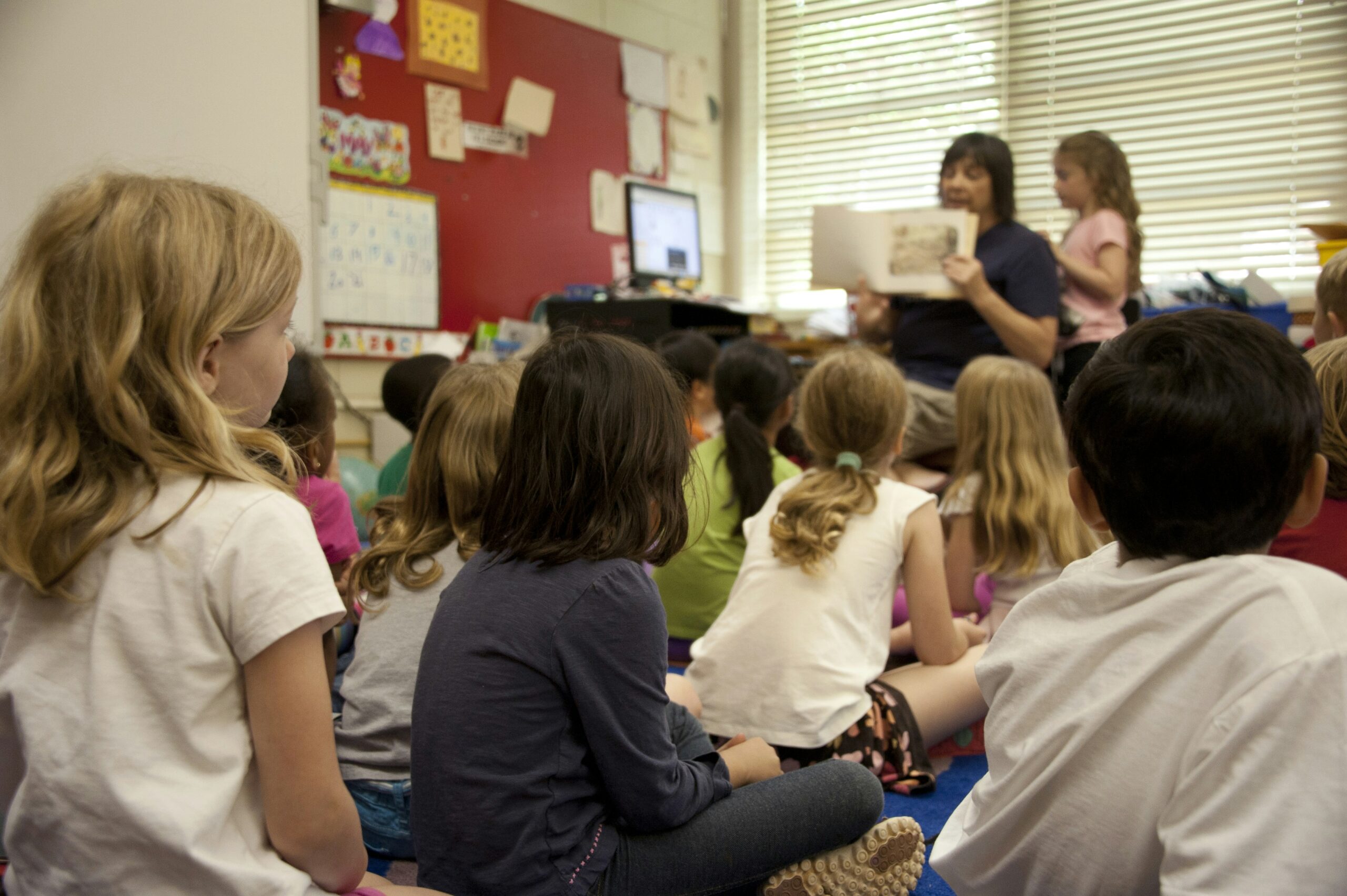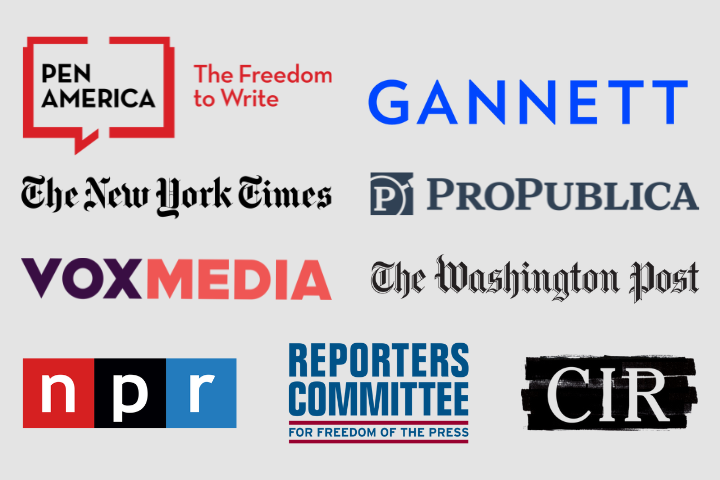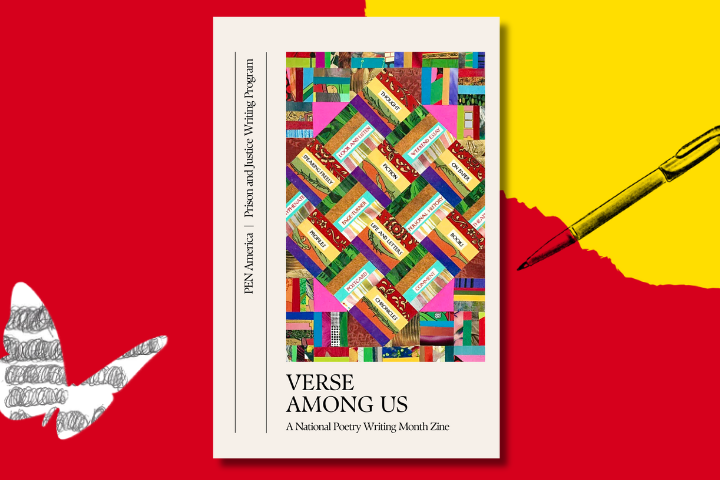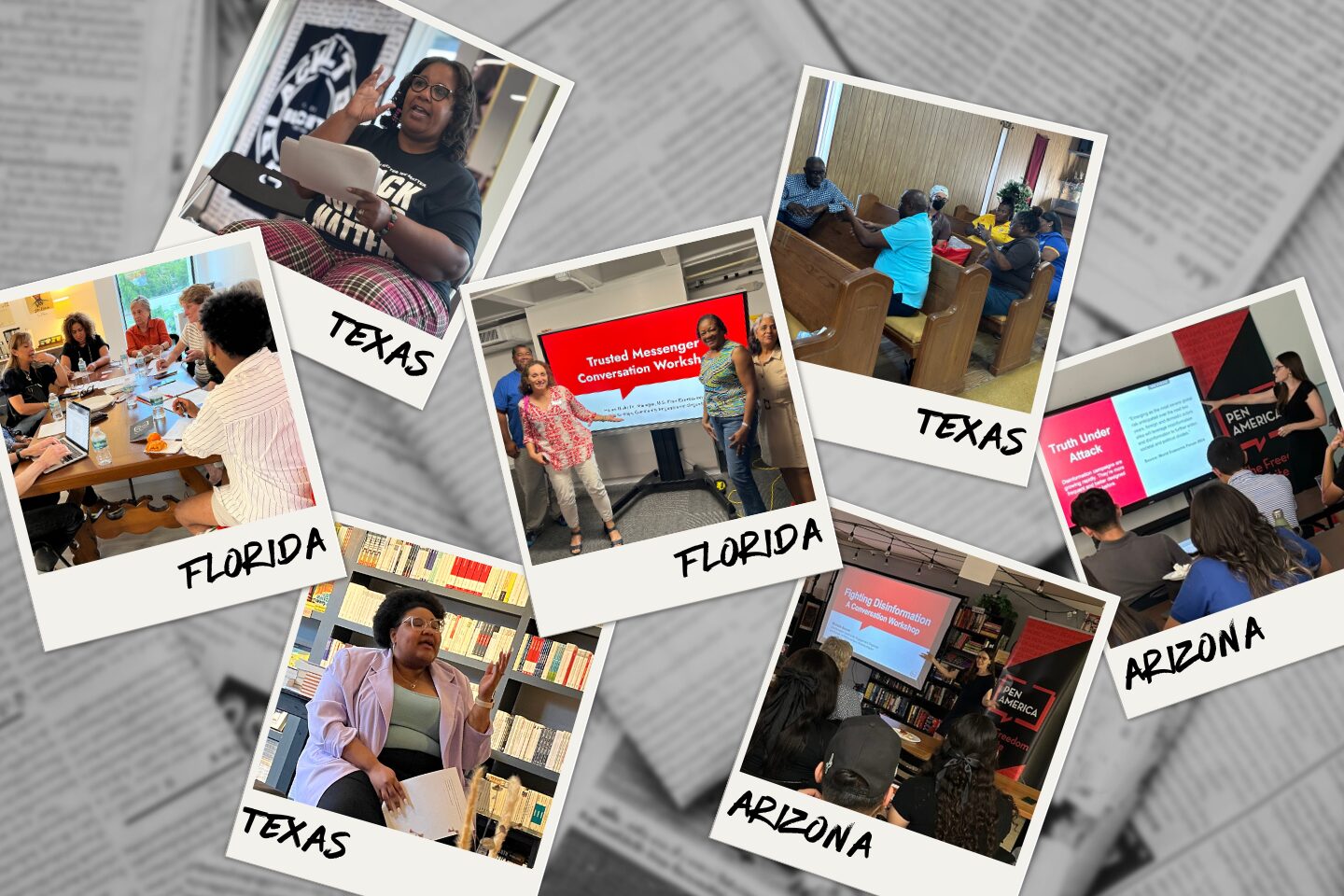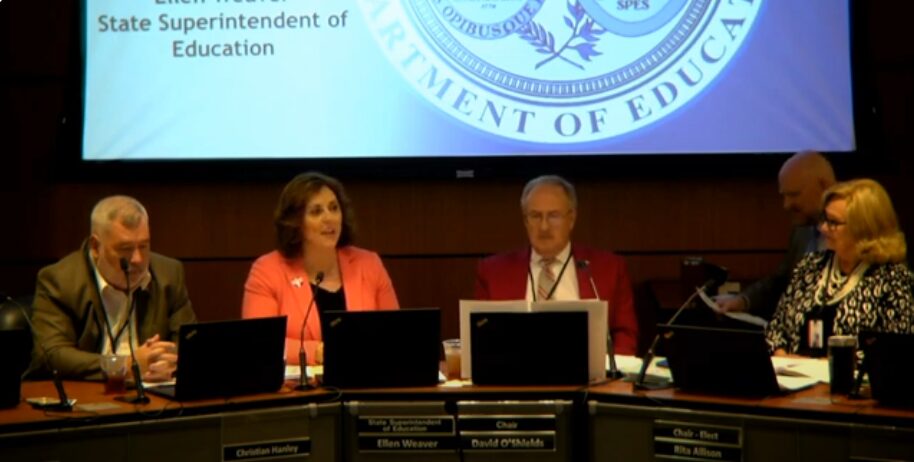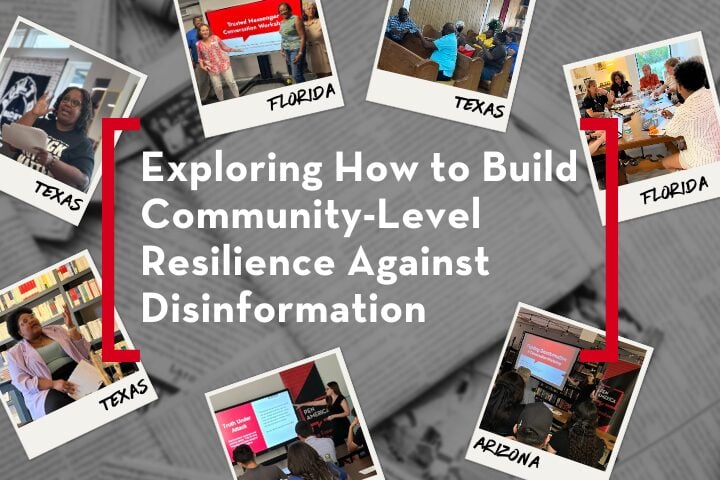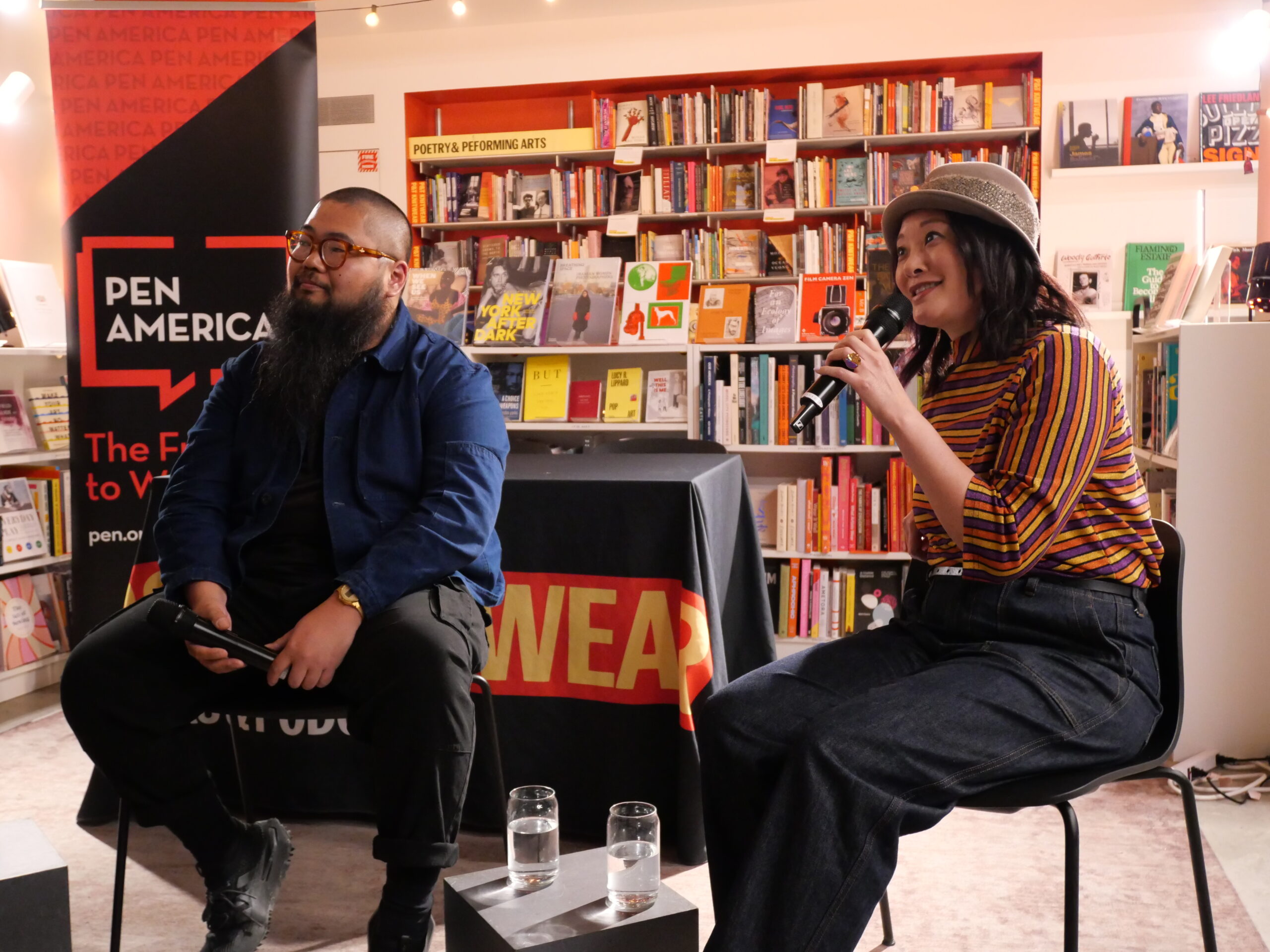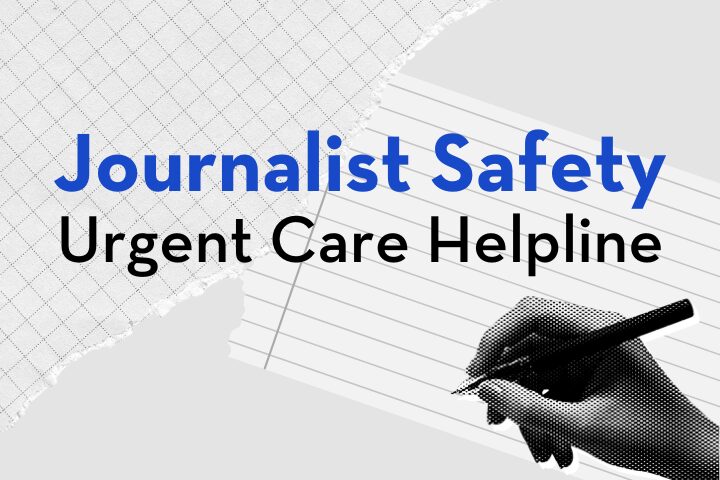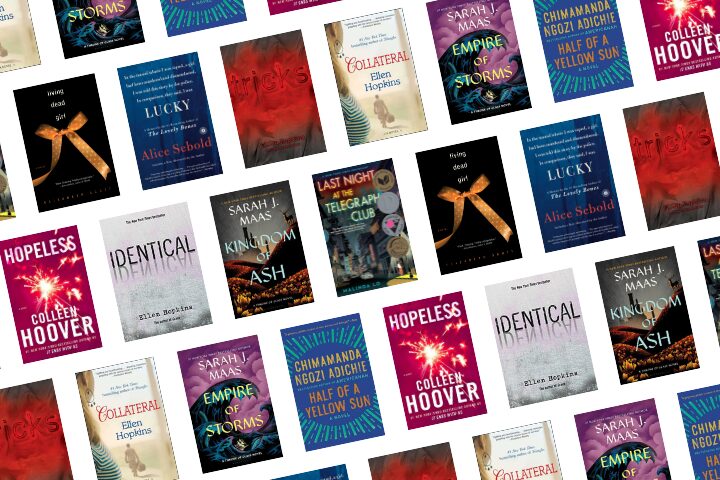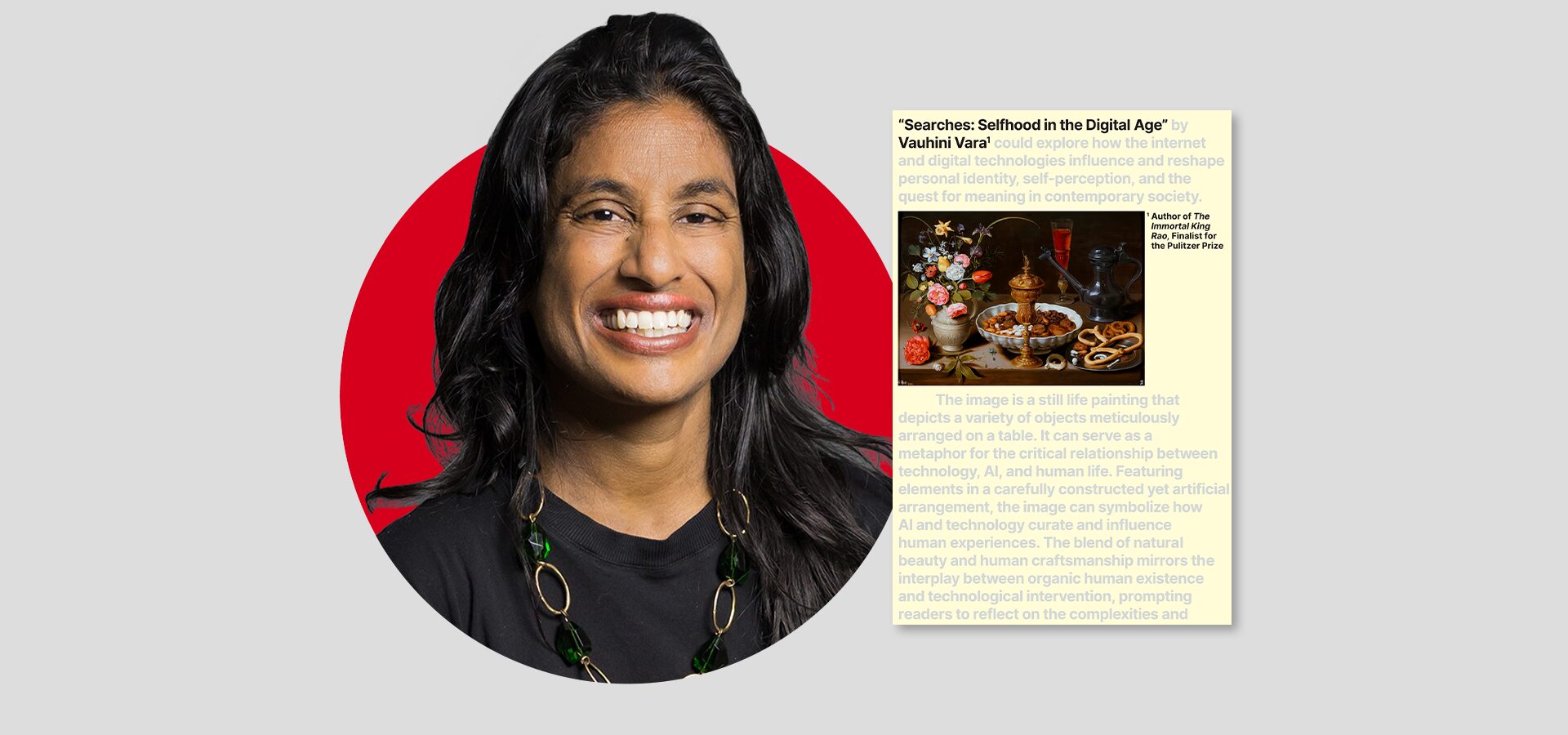
Vauhini Vara | The PEN Ten
In Searches: Selfhood in the Digital Age, we meet author Vauhini Vara as she stands in front of big tech before its boom—the way one might stand in front of a fresh Google search bar, cursor blinking. Then, she starts asking questions.
From logging in to AOL and finding community in chat rooms to pinching and probing ChatGPT’s predecessor to work through grief after her sister’s death, by way of Amazon and Meta, Google searches and AI-generated images, Vara’s book is as much a sweeping lesson in internet history as it is cultural commentary. And all the while, we follow her personal trajectory as she deals with loss and life’s changing courses. A masterful memoir written with the precision of a journalist and skills of a creative writer—both of which Vara is—and framed as a conversation with ChatGPT, Searches (Pantheon, 2025) takes us on an astonishing journey that shocks us from time to time with how little we know about tech, how much tech knows about us, and how much more there is for all of us to know and learn.
Vara, a Pulitzer finalist for her debut The Immortal King Rao, talked to Amulya Hiremath, a Communications Consultant for PEN America, about asking questions, the internet as a memory tool, and if indeed there is selfhood to be found in the digital age. (Bookshop, Barnes and Noble)
Searches instantly brings to mind the existence of questions. What was your founding question for this book and how did it evolve as you were writing it?
So, honestly, I didn’t know what the question was at first! That’s often true for me. It was only through writing that I figured out what it was. I realized, in the end, that I wanted to know how using big technology companies’ products — for me, for all of us — implicates us in their exploitation of us, others, and the planet. Assuming it does, I wanted to know if there could be ways to use the products that would function as a reappropriation of those tools for our own purposes outside of those for which they were intended, and whether that could somehow free us of our complicity.
Many topics you explore in the book are deeper dives into your reporting from your days covering Silicon Valley. What context do you hope revisiting those, this time infusing it with your personal experiences, will add to the discourse around technology? How did you find asking questions as a journalist different from asking questions as a writer?
It was so, so interesting to revisit that reporting — which I hadn’t actually gone back and read in such a long time — and see both how early I and other reporters were raising concerns about these companies’ exploitation of us and how limited we felt in our ability to cover it, because we didn’t know yet what was going to happen. We couldn’t write, like, “If things keep going like this, big technology companies are going to use what they know about us to further entrench the wealth and power of the rich and powerful.” That seemed like irresponsible journalism, because we had no way of predicting exactly what was going to happen. (That said, my then-Wall Street Journal colleague Julia Angwin was ringing alarms about tech surveillance really early on.)
We also generally couldn’t deeply infuse our reporting with subjective, memoiristic thoughts on what it all meant for each of us individually — as reporters who were also human beings — because that tended to be outside of the scope of our work at publications like the Wall Street Journal. (That said, journalists like Kashmir Hill were breaking this rule early on from inside newer newsrooms that were experimenting more with the journalistic form — and in my own bureau, one of the deputy bureau chiefs at the time, Pui-Wing Tam, wrote an incredible first-person story about Hewlett-Packard surveilling her — including rummaging through her trash — to try to figure out who her sources were.)
I’ve always been both a journalist and a creative writer, but I’ve approached those two fields super differently — using a pretty traditional, even conservative, approach in my journalism, while my creative writing (almost entirely fiction, until now) has been more experimental and boundary-bending. But there’s been experimentation in journalism all along — and it’s reaching the mainstream, too, now. Julia and Kashmir both write for the New York Times now, and Pui-Wing is a deputy business editor there. In this book, I was trying to close the distance between how I approach creative writing and how I approach journalism — seeing if I could find a new form that would let me say something that was fact-based and fair (like the best journalism is) while also being speculative and subjective (like a lot of the best creative writing is).
You, quite literally, chat with ChatGPT as you are writing this book—discussing your writing and the themes, and getting feedback. What was the thought process behind not just discussing the software in the book, but framing it as a conversation with it?
I didn’t chat with ChatGPT as I wrote the book, but I did feed most of the book into ChatGPT after I was done writing — two chapters at a time — and acted as if I were asking the chatbot for advice about how to write it. For me, it was a kind of performance (in which I was playing the character of someone asking for advice about her book-in-progress) in which I was interested in how these products can manipulate us and also how we can manipulate them.
I’ve always been both a journalist and a creative writer, but I’ve approached those two fields super differently — using a pretty traditional, even conservative, approach in my journalism, while my creative writing (almost entirely fiction, until now) has been more experimental and boundary-bending.
You were able to get your hands on a predecessor to ChatGPT and you briefly note how, even then, you could already sense it as a potential threat to our jobs as writers. Since its wider release in 2022, and its subsequently remarkable trajectory, how has your perception of it changed? Do you still consider it a threat?
I’m not sure my perception of it has changed — I do still consider it a threat — but I’m more aware of our own agency (that is, those of us who aren’t investors in OpenAI and other companies building AI products) in deciding whether to allow a future in which AI is a threat. This is from following scientists and scholars such as Timnit Gebru, Shoshana Zuboff, Emily M. Bender, and Alex Hanna — the latter two of which have a book coming out, called The AI Con, about this.
In an essay you quote Salman Rushdie who wrote about English, “We cannot simply use the language in the way the British did: it needs to be remade for our own purpose.” How does this line extend to how AI uses language today? And how is technology changing the language we use?
Language, as a technology, isn’t owned by anyone — so while it can be (and has been) appropriated by the rich and powerful to oppress everyone else, it can also be (and has been, as Rushdie points out) used by any of us however we want. This isn’t true of AI, at least not at the moment. It’s expensive to build and use, which means our use of it depends on — and enriches — the investors in the AI products we use.
What is something unexpected you learnt in writing and publishing this book? Was there any pushback against your idea of including text by AI as a part of it?
Now that I’ve started to see how some early readers are responding to it — people who are interviewing me or who got early copies through giveaways — I’m struck by how differently different people are interpreting the book. Some of the interpretations are wildly different from my own. I’ve always been one of those writers who feel that a text is co-created by an author and a reader, so I’m glad people have such diverse readings of this book, even though part of me sometimes wants to go, No! That’s not what I meant! As for including AI-generated text as part of the book — do you mean pushback from editors or my agent? No, there wasn’t.
As we move towards a more tech-inclusive writing and publishing sphere, what’s your advice for writers, new and old?
I don’t think I have any particular advice for writers, except to stay true to their own values — and to recognize that no single future (including one in which writing and publishing are dominated by big tech companies) is inevitable.
Language, as a technology, isn’t owned by anyone — so while it can be (and has been) appropriated by the rich and powerful to oppress everyone else, it can also be (and has been, as Rushdie points out) used by any of us however we want.
Your Indian heritage has long influenced the literature that you write in many forms and capacities. Do you think that was at play in writing this book and interacting with technology too? Where do you think this book fits?
I’m sure it was at play in lots of ways, in that it’s inextricable from my identity as a person and writer. One way in which this was the case is that the book is largely about how big technology companies reinforce white, patriarchal values — and my own identity (not just being Indian, but various other aspects of it, too) probably gives me a unique ability to see that, not that other people, including white men, don’t also have their own unique ability to see it.
There is a lot of talk about the impermanence of humans, our lives and our memories. How do you think the integration of technology—with its endless ability to remember every single thing, as illustrated in your chapters revealing your browser history and past Amazon reviews—and using it as a memory tool shape how we look back on our own lives?
We have this incredible archive of our digital past through these tools — but at the same time, it’s a limited archive (given that it includes only the aspects of our pasts that have monetary value for the companies maintaining the archives) and it’s a compromised archive (given the exploitation required to maintain the archives). So I think we have to acknowledge that uncomfortable fact.
A large part of the book is a quest for selfhood and identity in the digital age. In the end, did you think ChatGPT, having read the book, had gathered a good sense of your selfhood, and of humans’ in general?
By my definition of selfhood, no — but I don’t think the companies behind these products value selfhood in the same way. They value my selfhood to the extent that it’s monetizable, and by that definition, ChatGPT has a great sense of my selfhood.
Vauhini Vara has been a reporter and editor for The Atlantic, The New Yorker, and the New York Times Magazine, and is the prize-winning author of The Immortal King Rao and This is Salvaged. She lives in Fort Collins, Colorado.

